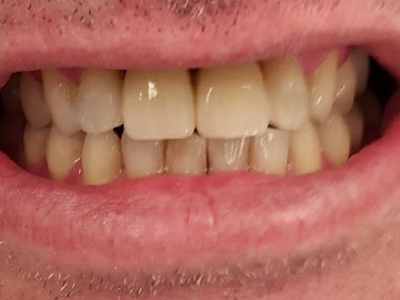Tooth replacement: Why it is recommended sometimes.
If you lose a tooth it can impact your ability to chew or speak correctly. This can affect your confidence and self-esteem. That`s why tooth replacement is so important. There are a myriad of options available for replacing missing teeth, including dental implants, dentures, and crowns.
Implants for dental purposes are well-liked to replace missing teeth because they look and feel like natural teeth. Implants are a durable option that doesn`t need special care other than regular brushing and flossing. Your dentist will decide if you are a candidate for a dental implant based on factors like the health of your jawbone and gums.
There are many options to replace missing teeth when you don`t qualify for dental implants or if you`d like to use a different solution. Dental implants can be taken out and used to replace missing teeth. Crowns are an alternative for restoring damaged or decayed teeth that may need additional assistance following treatment. Your dentist will determine what is most suitable for you based on the needs and preferences of your individual situation. Forest and Ray is a good starting point to get more information.
There are a variety of options for tooth replacement offered
Teeth are an integral part of our overall health and appearance. The loss of one or more teeth will have significant effects on our ability to speak and eat, as well as our self-esteem. There are a variety of options for replacing missing teeth.
False teeth are removable dentures that are placed over your gums. They are able to be used to replace a single tooth or multiple missing teeth. False teeth are composed of various substances, like porcelain, acrylic resin or alloy of metal.

Implants are another option for replacing missing teeth. Dental implants are the result of surgically putting an implant made of titanium into the jawbone, where the tooth that was missing was. After the implant has bonded with bone, a permanent tooth replacement (such as crowns) is attached to it.
Bridges can be a third option to replace missing teeth. They are comprised of artificial teeth that are anchored by natural teeth or dental implants. Bridges are constructed of a variety of materials, like ceramic and porcelain.
Consult your dentist to determine the most effective treatment option for your specific needs and health. Whatever option you decide to go with, maintaining your smile will help it last a long time.
Consultation and Evaluation Process
In the consultation and evaluation procedure, your dentist will examine your oral health to find the best option to replace missing teeth. They might recommend dental implants either a denture or a dental bridge based upon your individual needs. If you are missing one tooth, an implant procedure may be recommended since it`s supported by adjacent teeth. It can also improve your smile.
Partial dentures, also known as removable partial dentures, could be recommended if you have several missing teeth. They are more flexible than a fixed dental bridge. Your dentist will go over all the options available to you, allowing you to make an informed decision. In certain cases, teeth whitening procedures may also be recommended before proceeding with any dental replacement procedure to ensure that existing teeth correspond to the color of new restorations.
In preparation for the procedure, it is important to talk to your dentist about any potential dangers or complications, and ensure that you are aware of what to expect both during and after the procedure. It is vital to follow all instructions for pre-operative treatment given by your dentist, in order to minimize any potential risks that may arise from the procedure. Instructions for aftercare will also be advised to follow carefully to ensure healing and ensure excellent oral health over the long run.
Get ready for the procedure
One of the initial steps to prepare for a tooth replacement procedure is to talk with your dentist. Your dentist will evaluate the condition of your missing teeth during the consultation and suggest alternatives to replace the missing teeth. Dentures, dental implants, and crowns are a few of the most common options for replacing teeth that are available.
It is important to have an excellent dental health before going through any type of dental procedure. Gum disease or decay can hinder the effectiveness of any tooth replacement process. Before suggesting a tooth replacement procedure the dentist might recommend solutions like teeth whitening and gum treatment.
It`s important to consider the way that a replacement tooth could affect the adjacent teeth, as well as the alignment of your bite. Your dentist will be able to discuss these issues with you in the course of consultation. They will guide you to choose a replacement option that closely mimics the appearance and function the natural tooth.
Replace your teeth using this method
One method to restore missing teeth is through the implant of dental implants. This procedure involves inserting a titanium post into the jawbone, which acts as an anchor for an artificial tooth. Dental implants are considered a permanent solution and can be made of materials such porcelain, which matches the teeth around it.
A dental bridge is another option to replace missing teeth. Bridges rely on the teeth located on each side of the gap to support a false tooth or a number of false ones between. Bridges are made of different materials, such as ceramic or porcelain. However, they may require additional dental treatment in the event of bone loss within the area.
Partial dentures are a great option to replace missing teeth. They are removable devices that are attached to natural teeth by clasps or precision attachments. They are made of either metal or acrylic resin, and provide a lower-cost alternative to other types of.
Whatever method you pick, it`s crucial to talk with your dentist and get an evaluation performed before undergoing any procedure that involves replacing teeth. Your dentist will assess your oral health and suggest choices based upon factors such as the cost, durability, as well as aesthetics. Aftercare and maintaining teeth play a significant role in making sure that you get a good result with no risk or complications.
Recovery and aftercare
The proper care and recovery aftercare is crucial for the success of your dental replacement procedure. The dentist you visit will provide you with specific directions to ensure that your new teeth heal properly, so that you`ll be able to keep your teeth healthy in the long term.
If you`re missing a tooth, or more teeth, there`s many options available to replace the missing teeth. The removable partial denture is a common choice to replace teeth that are missing. It is also used to replace many teeth. Another alternative is a bridge which involves putting a fake tooth beneath the bridge in order to fill the gap that is left by the missing tooth.
It`s crucial to know that leaving a missing tooth untreated can have a negative impact on the remaining teeth in time. When the adjacent teeth move into the space that is left empty by a missing tooth, gum disease and tooth decay can occur. Schedule a consultation with your dentist to discuss the cost and treatments options for one implant for missing a tooth or several teeth.
Dental implants are among the most frequently used procedures to replace missing teeth. Implants look and feel like real teeth than other alternatives like bridges or dentures as they`re surgically implanted in the jawbone and they`ll eventually become bonded. Implants can last for many years with proper maintenance and care afterward.
Maintenance of dental implants over the long-term
Regular maintenance is essential to ensure the long-term durability of the prosthetic replacement tooth. It is very important to floss and brush every day around your bridge, if it has one. A floss-toother specifically designed for this will be recommended by your dentist to clean beneath the bridge. Regular dental checkups are necessary in the case of dentures, or bridges to replace multiple teeth.
If you`ve decided to go with dental implant treatment, then long-term care is easy like flossing and brushing regularly. The dentist may also suggest applying an antibacterial mouthwash to fight off bacteria. It is possible to take X-rays periodically to check for any issues with bone density near the implant location.
The crown that is fitted to the implant must be treated with the same attention as natural teeth – twice daily brushing, and once a week of flossing should suffice. If properly cared for, implants will last for a long time. Therefore, make sure you ensure you follow-up with all appointments recommended by your dentist during this time of covid pandemic.
Potential risks and complications to be aware
It is essential to think about potential risks and complications in evaluating alternatives to replace teeth. A common problem with dental implants is the chance of the implant not integrating correctly with the jawbone which can cause discomfort or even the need to remove the implant. If a porcelain crown is employed as part of the replacement process there may be a risk of cracking or chipping with time.
Another thing to consider when going through tooth replacement procedures is that a variety of treatments are needed for optimal results. It could be orthodontic treatment to ensure proper alignment of adjacent teeth as well as oral and maxillofacial operations to make an abutment. Implants are designed to appear and feel similar to natural teeth, they might not be a perfect match.
It`s essential for patients to discuss any concerns regarding potential risks with their dentist during their initial consultation. There are some rare cases of more serious complications, for example, nerve damage. In addition, patients who had oral cancer or radiation treatment in the past could require additional care when it comes to tooth replacement procedures due changes in facial muscles and bone structure.
Many people believe that replacing missing teeth helps them gain confidence back, as well as a smile. When properly maintained and aftercare is provided of both the patient and their dental team, dental replacements will last for a long time well-anchored within both upper and lower jaws – offering peace of mind that they have regained full function thanks to modern dental technology and skills!
